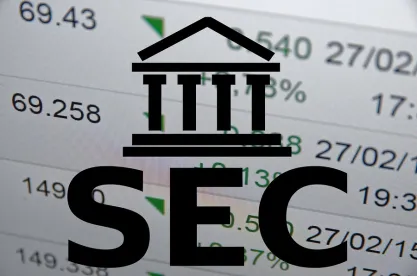On June 23, 2016, Merrill Lynch, Pierce, Fenner & Smith Inc and Merrill Lynch Professional Clearing Corp. (collectively, “Merrill Lynch”) agreed to pay $415 million and admit wrongdoing to settle charges of rules based violations, including Exchange Act Rule 15c3-3, the Consumer Protection Rule (the “Consumer Protection Rule”) and Exchange Act Rule 21F-17 (“Rule 21F-17”), which prohibits any action impending an individual from communicating directly with Commission staff about possible securities laws violations. See Release No. 78141.
Exchange Act Rule 15c3-3, known as the Consumer Protection Rule, was enacted to “protect broker-dealer customers in the event a broker dealer becomes insolvent” by eliminating the “use by broker-dealers of customer funds and securities to finance firm overhead and such firm activities a trading and underwriting through the separation of customer related activities from other broker-dealer operations.” To safeguard assets, the Consumer Protection Rule requires broker-dealers to “maintain a reserve of funds and/or certain qualified securities in an account at a bank that is at least equal in value to the net cash owed to customers” and to “promptly obtain and thereafter maintain physical possession or control over customers’ fully paid and excess margin securities . . . . in one of several locations . . . held free of liens or any other interest that could be exercised by a third-party to secure an obligation of the broker-dealer.” The Consumer Protection Rule also imposes a self-reporting requirement where, in the event that a broker-dealer fails to maintain sufficient reserves, it must immediately notify the Commission and FINRA.
Signaling that the SEC may suspect that other broker-dealers may have also violated the Consumer Protection Rule, Michael J. Osnato, Chief of the SEC Enforcement Division’s Complex Financial Instruments Unit, announced in a press release: “Simultaneous with today’s action, SEC staff will begin a coordinated effort across divisions to find potential violations by other firms through a targeted sweep and by encouraging firms to self-report any potential violations of the Customer Protection Rule.” Press Release No. 2016-128. In light of the significant civil penalty imposed by the SEC against Merrill Lynch, broker-dealers should take a hard look at their own compliance with the Consumer Protection Rule and seriously consider self-reporting if they find violations as required by the Consumer Protection Rule itself.
Rule 21F-17 was enacted to “evince[] a Congressional purpose to facilitate the disclosure of information to the Commission relating to possible securities law violations and to preserve the confidentiality of those who do so.” “Implementation of the Whistleblower Provisions of Section 21F of the Securities Exchange Act of 1934,” Release No. 34-64545, at p. 198 (Aug. 12, 2011). The SEC acknowledged that it did not discover any instance where a Merrill Lynch employee was prevented from directly communicating with the Commission regarding potential securities law violations, certain Merrill Lynch policies, procedures, and agreements with employees included language that the SEC claimed did not permit an individual to voluntarily disclose confidential information. The Order further states that Merrill Lynch promptly took “substantial remedial acts” to address any Rule 21F-17 violations, including revising its severance agreements. Notably, this is the second time the Commission has held proceedings for Rule 21F-17 violations without any evidence that any employee had been prevented from disclosing confidential information to the government. See In the Matter of KBR, Inc., Release No. 74619. Given that the Consumer Protection Rule violation seems unrelated to the Rule 21F-17 violation, it seems likely we will see the staff asking about language included in employment agreements, severance agreements and other employment policies during investigations even in the absence of specific whistleblower concerns.
While Merrill Lynch admitted to wrongdoing, the settlement involves rules based violations as opposed to fraud based violations. Merrill Lynch did not admit to any fraudulent conduct. Notably, some of the largest “admit” settlements have been grounded in rules based violations. See Press Release No. 2013-187 (JPMorgan Chase admits to wrongdoing and pays $200 million and $920 million worldwide to settle SEC charges); see also Press Release No. 2014-17 (Scotttrade admits to wrongdoing and pays $2.5 million to settle SEC charges). The Commission also announced on June 23rd, a litigated administrative proceeding against William Tirrell, Merrill Lynch’s former Head of Regulatory Reporting, related to the Consumer Protection Rule violations. See Release No. 78142. The proceeding will be scheduled for a public hearing before an administrative law judge.





 />i
/>i
